[ad_1]
Architects: Need to have your venture featured? Showcase your work via Architizer and join our inspirational newsletters.
Japan has, for a really very long time, had a fame as a rustic whose residents are the epitome of well-mannered and truthful. The observe of omotenashi has rather a lot to do with this. Omotenashi is thought to be the idea of Japanese hospitality and repair, be it a retailer, a resort or a hairdresser. The idea is an ingrained cultural expression — one which has birthed a deeply internalized set of behaviors and expectations all through Japan.
Many people, I believe, have been launched to the idea of omotenashi because of Christel Takigawa, the Tokyo 2020 Bib Ambassador, who introduced an eloquent speech throughout the 2021 Tokyo Olympics that defined the concept to the remainder of the world. Whereas most smiled and nodded with obscure intrigue in the direction of the unfamiliar lifestyle, the hospitality business, properly, they stood up and listened, and it’s actually beginning to present.
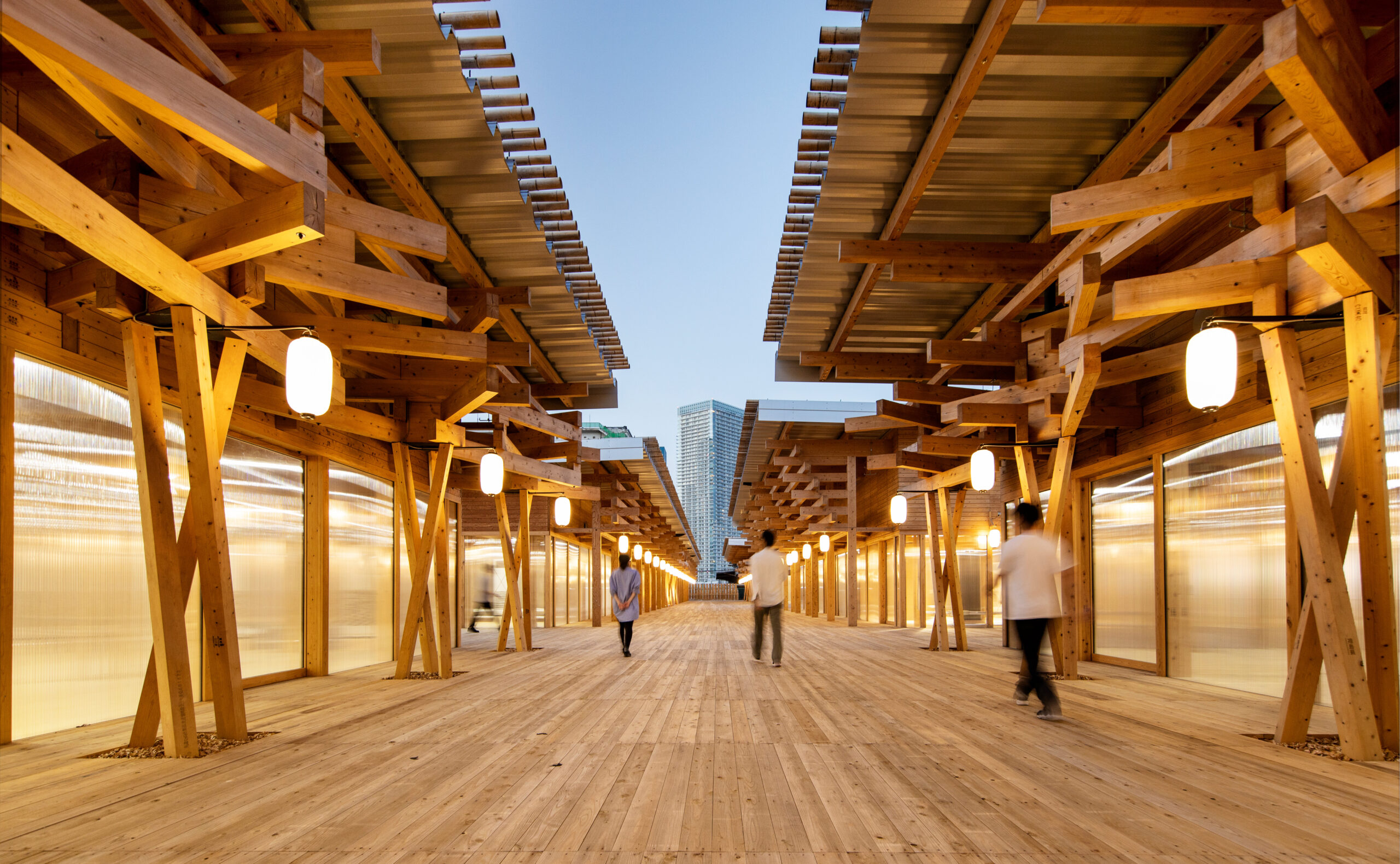
Athletes’ Village Plaza by NIKKEN SEKKEI LTD, Tokyo, Japan. {Photograph} by Gankosha, Harunori Noda
A portmanteau, “Omote” that means public face — a picture you want to current to outsiders. “Nashi,” that means nothing mixed, suggests that each service comes from a spot of transparency and the underside of the center — trustworthy, no hiding, no pretending.
There isn’t a shock, then, that the philosophy has its roots within the conventional sado (tea ceremony), the place tea masters face their audiences and put together tea in entrance of them. These tea ceremonies not solely give attention to tea but additionally on fostering constructive human relationships. The preparation, room decorations, the utensils which can be used, the tempo of the occasion, the dialog that takes place and, after all, the sharing of tea are all meant to create a harmonious ambiance the place individuals really feel comfy, related and cared for. The whole lot is open and clear, which leads again to the key phrases: serve wholeheartedly.
So, what does this imply for the worldwide hospitality business? Merely this, a typical has and is continuous to be set all through Japan. The extent of hospitality and repair obtained in Japan is certainly the most effective on the earth. Due to this fact, if business house owners and operators elsewhere need to sustain, and so they actually do, omotenashi is the right place to start out.
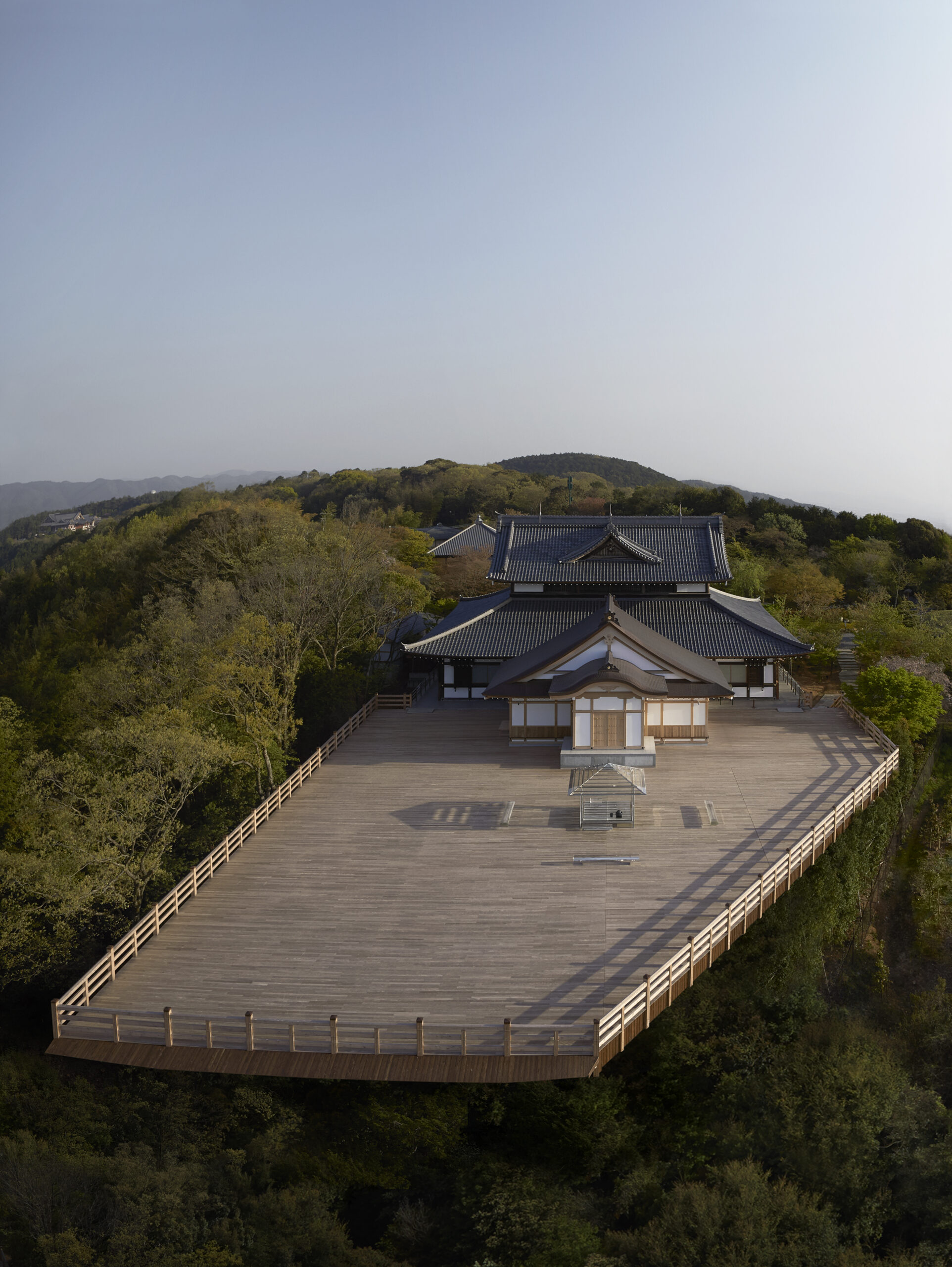
KOU-AN Glass Tea Home by TOKUJIN YOSHIOKA DESIGN, Kyoto, Japan. {Photograph} by Yasutake Kondo
Omotenashi relies on three important ideas. The primary is Kikubari. The artwork of anticipation entails a eager sense of consciousness, a sixth sense of types, to foretell what a visitor will want or want earlier than it’s even vocalized. This extends properly past the plain, like inserting a glass of water beside the mattress or adjusting room temperature. It might manifest in the best way the room is about up for a enterprise traveler, who finds an ergonomic chair already adjusted to a cushty peak and angle, or within the bespoke collection of studying supplies for a visitor identified to be a literature aficionado. Kikubari is the heartbeat of personalised consideration, resonating subtly but profoundly within the background of the visitor’s expertise.
The following is Ichigo Ichie. This precept revolves across the serendipity of a singular encounter and the importance that comes with it. It’s the cultural embodiment of the phrase, “Deal with each assembly as if it’s your final,” and it cultivates a degree of sincerity and earnestness that’s nearly palpable. In a resort setting, this interprets to the care taken in even the best of duties, opening and holding a door with real care, or in the best way a visitor is bid farewell, not as a conclusion however as a poignant “till we meet once more.”
Lastly, Omakase — actually “I’ll depart it as much as you”— is the precept of belief between visitor and host. Historically utilized in sushi eating places the place patrons permit the chef to decide on their meal, in a broader hospitality context, it suggests a excessive degree of confidence within the service offered. For instance, a resort the place friends really feel so attuned with the expertise that they forego selecting from a menu, trusting the chef to please their palate, or permitting the concierge to plan a whole day’s itinerary, sure it would fulfill their unstated wishes.
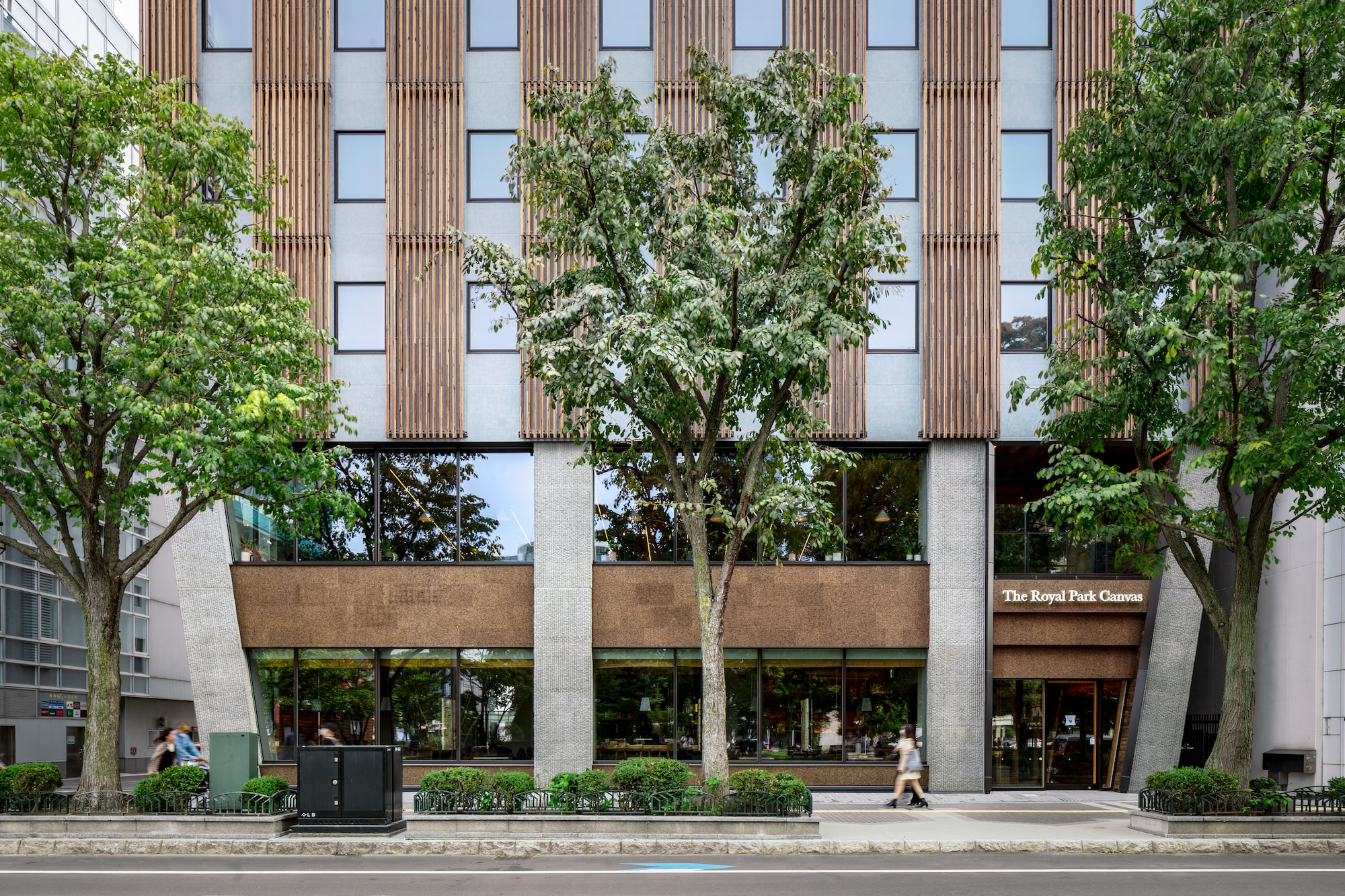
The Royal Park Canvas by Mitsubishi Jisho Design Inc. Sapporo, Odori Park, Japan. {Photograph} by Kawasumi – Kobayashi Kenji
In weaving these ideas into the material of a resort’s operations, there’s a transformative shift from service to stewardship, from lodging to communion. Integrating these ideas requires not only a change in operational protocol however a shift in mindset. It’s a reorientation that strikes away from surface-level buyer satisfaction metrics to deep, qualitative understandings of human interplay and care.
Nevertheless, omotenashi’s influence on the hospitality business will not be merely about implementing a set of standardized procedures however an entire recalibration of the ethos that drives interactions between service suppliers and their friends. Inside this framework, expertise and information analytics emerge as highly effective instruments to attain the refined sophistication required for real omotenashi. Think about good rooms in a resort that make the most of sensors and information analytics to grasp a visitor’s routine — figuring out once they normally return to their room and robotically adjusting room temperature, dimming the lights, and even drawing a shower to their most well-liked temperature. The catch is to not announce these changes overtly however to allow them to manifest organically in order that the visitor feels as in the event that they’re coming into an area that understands them intuitively. Right here, the dichotomy between excessive expertise and human contact achieves a harmonious stability, reflecting a type of hospitality that isn’t obtrusive however quietly anticipative.
Know-how however, from the lens of inside design, the bodily areas inside a hospitality setting may be meticulously designed to embody omotenashi. Past easy aesthetics, the association of furnishings, the collection of supplies, and the stream of sunshine and area have to be regarded as a holistic expertise. The precise intention in these cases is to evoke a sure emotional state in its occupant. On this sense, the area itself turns into an lively agent in hospitality. As a visitor strikes from the foyer to their room, the transitions ought to really feel seamless, marked by refined adjustments in lighting, perfume, or sound which can be cognitively imperceptible however emotionally resonant. Every design selection, irrespective of how minute, turns into an act of hospitality, a gesture that claims, “Your well-being has been thought of right here.”
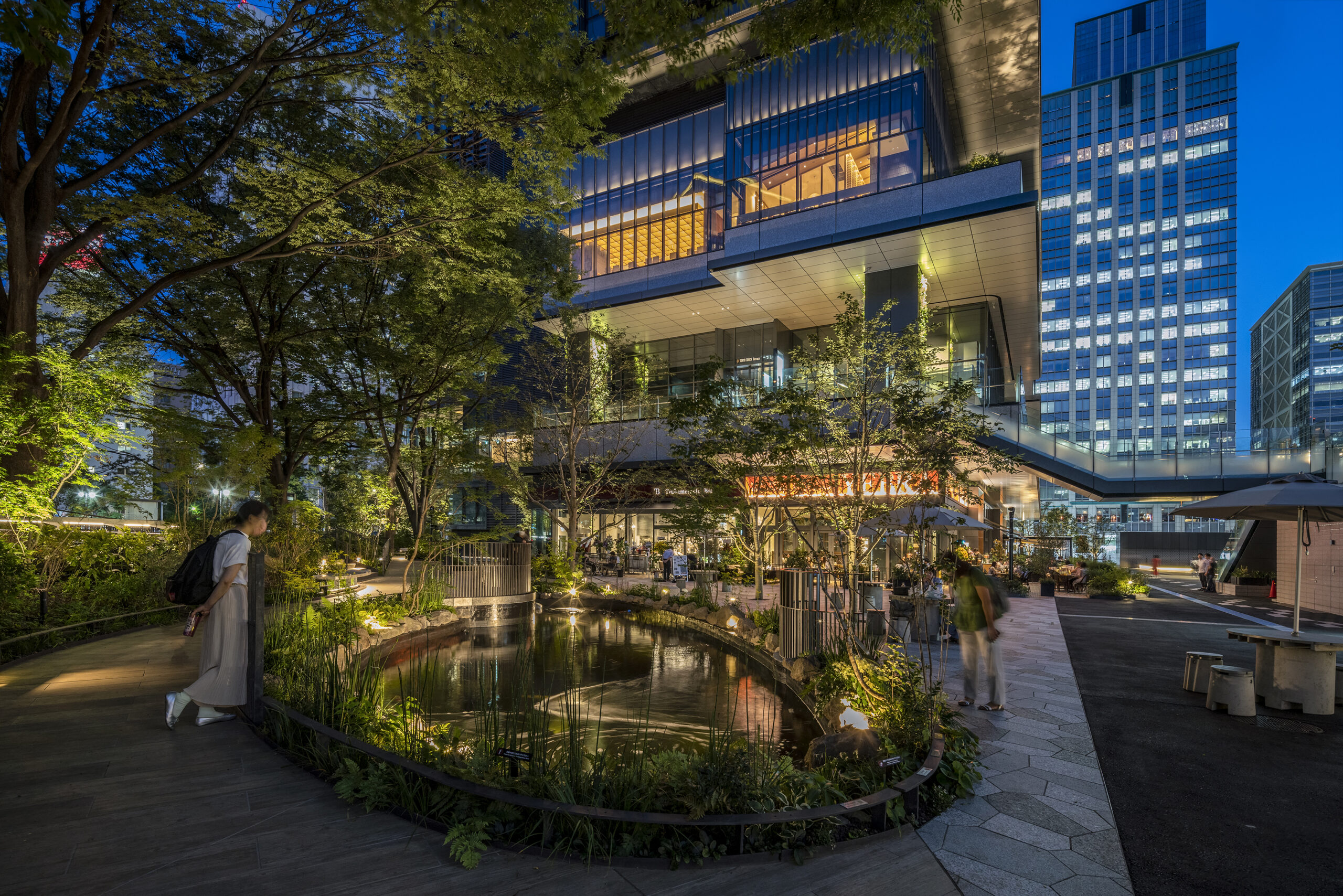
TOKYO TORCH Tokiwabashi Tower by Mitsubishi Jisho Design Inc. Tokyo, Japan. {Photograph} by Kawasumi Kobayashi Kenji {Photograph} Workplace
With regards to visitor preferences and behaviors, the trendy traveler is more and more valuing experiences over materials luxuries. Omotenashi can prolong to curating extremely personalised experiences for friends. If analytics reveal {that a} visitor regularly books rooms with a seaside view, a sea-scented room perfume can be an unstated but deeply appreciated gesture. For one more, it is likely to be a freshly brewed pot of native natural tea, recognizing their penchant for natural cures. The concept isn’t to create a generic paradise however a extremely individualized sanctuary the place every visitor feels uniquely understood.
This notion of omotenashi carries layers of complexity when utilized globally. Whereas the idea has its roots deeply embedded in Japanese tradition, its software throughout numerous cultural landscapes requires a level of transliteration reasonably than direct translation. It calls for a granular understanding of native customs, practices, and idioms of consolation and hospitality. Can a Center Jap interpretation of omotenashi contain variations of Bedouin hospitality? How would a Latin American model incorporate the area’s traditions of heat and communal celebration? As worldwide resort chains look to combine omotenashi into their service ethos, these are the nuanced challenges they’ll have to navigate.
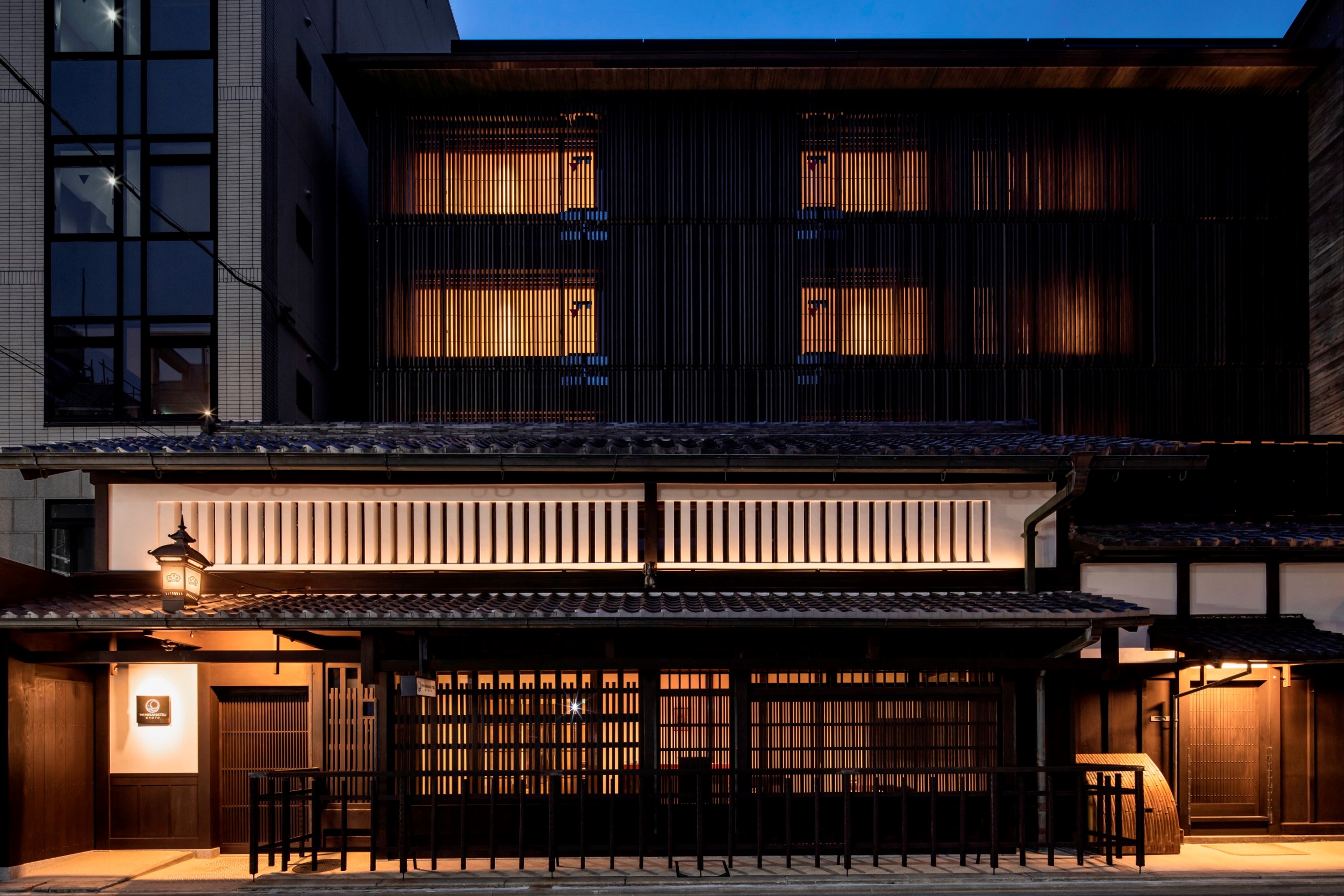
THE HIRAMATSU, KYOTO by NIKKEN SEKKEI LTD, Kyoto, Japan.
Moreover, and maybe most significantly, it’s essential to handle the skinny line between personalization and intrusion. Knowledge analytics can undeniably improve the scope of personalization, but hospitality suppliers should tread rigorously to make sure they don’t infringe on a visitor’s private area or privateness. The essence of omotenashi lies in anticipating wants, not in surveilling to the purpose of discomfort. Due to this fact, the problem is to create techniques which can be able to understanding with out overstepping and to develop clever interfaces that study simply sufficient to serve higher however not a lot that they invade.
What’s groundbreaking about omotenashi will not be its novelty however its means to disclose one thing basic that has, for many years, been missed within the hospitality business—the soul of internet hosting. In a panorama cluttered with loyalty packages and good gimmicks, omotenashi affords a profound pivot for inns and their house owners, extending their influence past the mere business enterprise, changing into areas that honor the profundity of human interplay. And isn’t that, at its core, what hospitality seeks to attain? It’s a name to strip away the performative layers of hospitality to show its core, which is a shared humanity. It turns each interplay into an train in empathy, making each the host and the visitor co-authors of an unfolding story.
Architects: Need to have your venture featured? Showcase your work via Architizer and join our inspirational newsletters.
[ad_2]
Source link



